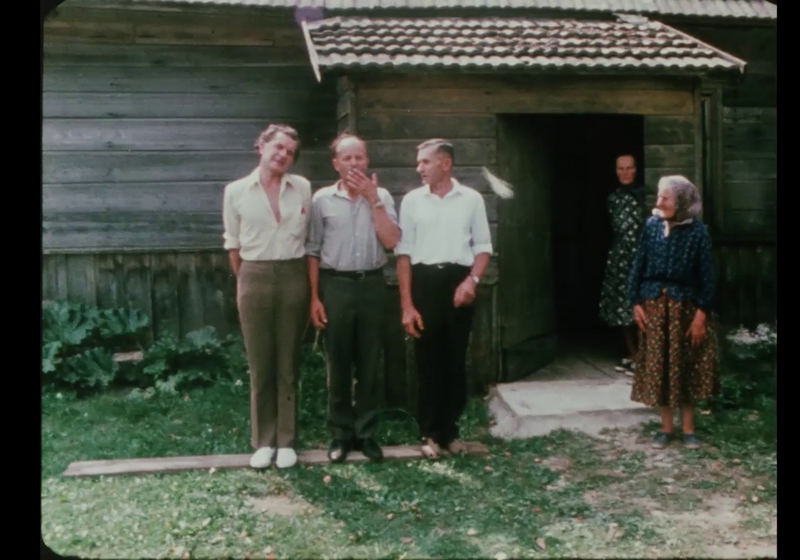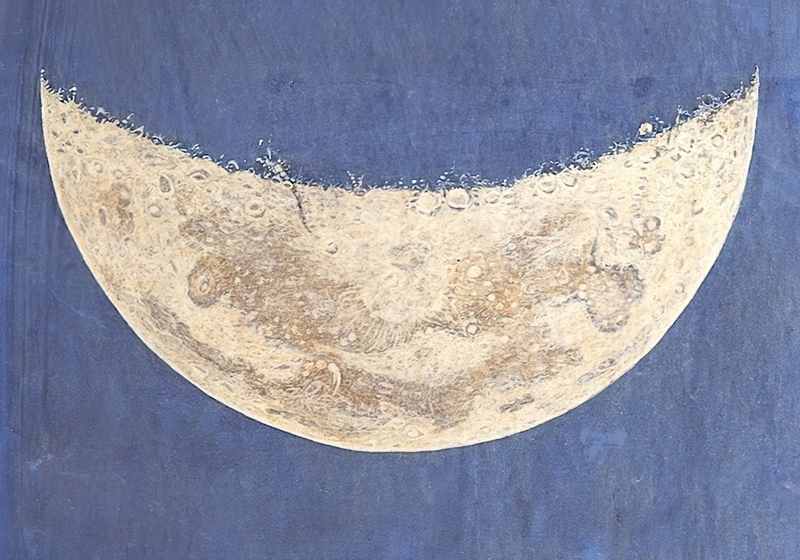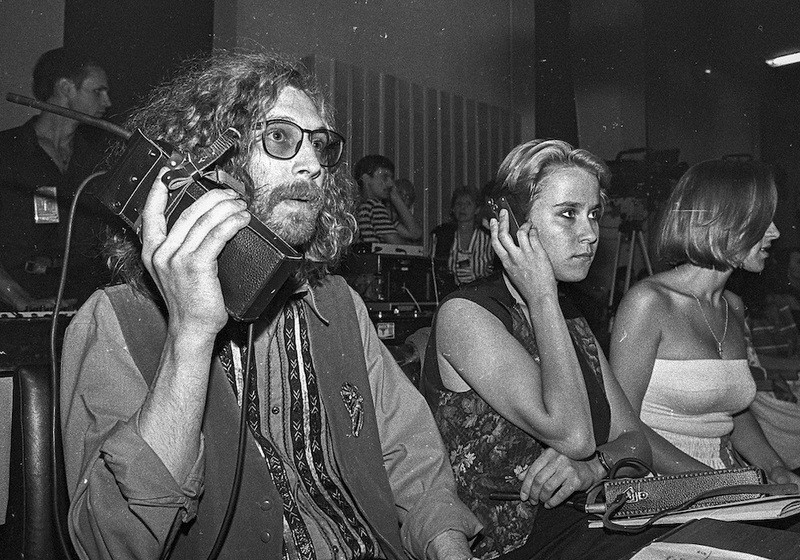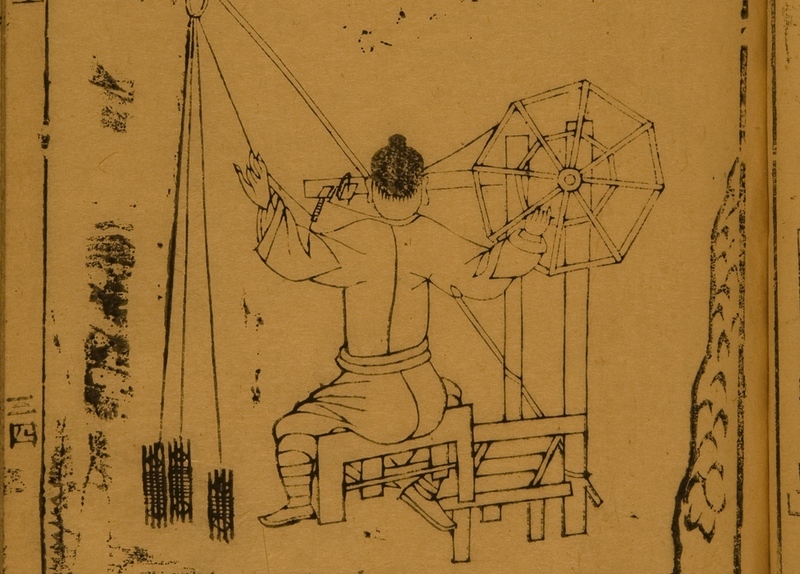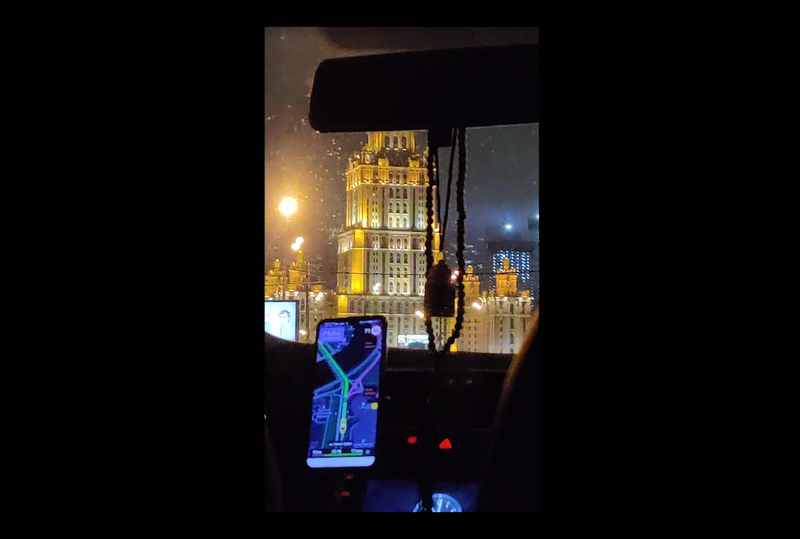The work of the Seoul-based artist duo YOUNG-HAE CHANG HEAVY INDUSTRIES — that is, Young-Hae Chang and Marc Voge, — has been shown at and acquired by a variety of big museums, including the Tate in London, the Centre Pompidou in Paris, the Whitney and the New Museum in New York, as well as the M+ in Hong Kong; presented at numerous biennials, among which are the ones in Venice and Sao Paulo; and celebrated and admired by many. For our Dream issue, we have asked Young-Hae and Marc to show their work WA’AD. YHCHI have produced a brand new Russian-language version of this piece exclusively for EastEast. WA’AD is also available in Arabic on the artists’ website. One of EastEast’s senior editors, Lesia Prokopenko, makes her best attempt at introducing YOUNG-HAE CHANG HEAVY INDUSTRIES below.
There’s one particular problem with writing about (and towards) YOUNG-HAE CHANG HEAVY INDUSTRIES: the moment I begin to construct a sentence, I feel like I’m writing from the inside of one of their works. The sentences are breaking into sections, the outlines of letters are getting saturated, the screen starts flashing, and the words are moving to the rhythm of a jazz soundtrack as featured in the artist duo’s enchanting, at times whimsically titled, tongue-in-cheek animations.
In case you haven’t experienced any art by YOUNG-HAE CHANG HEAVY INDUSTRIES yet, this is how Rhizome’s Net Art Anthology describes it: “Adopting the model of a fictional corporation, they produce online artworks that follow a strict formula: Flash movies consisting of texts set in all-caps Monaco typeface, appearing onscreen in sync with jazz and bossa nova soundtrackssoundtracksMusic pieces used in YHCHI's works are listed here.. Employing an ‘extremely pushy visual language,’ in the words of Josephine Bosma, the works of YHCHI borrow from cinema, poetry, and propaganda.”
That said, WA’AD, the piece we are showing here on the platform of EastEast, is set to a slower, dreamier, and, perhaps, more melancholic tune than the majority of YHCHI’s works, and its visual language probably doesn’t feel as “pushy.” This is because it is, in fact, an interplanetary transmission, with its text flowing through outer space…
In case you haven’t immediately stopped reading this introduction for the sake of watching WA’AD (as you should), I will try to write a bit more about YHCHI. To be honest, I don’t know much about YHCHI, and I wouldn’t have dared to write about them if it weren’t for YHCHI themselves. Having suggested doing an interview, I received the following reply:
“In truth, we don’t have much to say about anything outside of what we put in our work. Or rather, what we have to say we hope we say best in our work. If you care to Google us, you may notice that, relatively speaking, there isn’t much on or by us out there. So here’s a suggestion. Why not write something on us? We would love it if you speculated on YOUNG-HAE CHANG HEAVY INDUSTRIES in the most critical or uncritical fashion. Why not let go, let yourself muse on anything about our work that strikes your fancy?
A couple years ago we gave our ‘final’ artist talk. Its premise was that artists talk too much, and were spoiling things for the professional art lovers—curators, critics, historians, those whose job it is to explain art to us. Those who, for better or worse, are creating the history of art. Of course, since that talk we’ve talked a bit more, except now we call them performances. What’s the difference? Our performances are, we hope, basically incoherent, like all good performances are. They’re the opposite of the discursive writing we expect in the history of art. They’re everything that would be out of bounds for critics, curators, and historians to say. They’re, we hope, art.”
As you can see, I’m already cheating, as I’m neither a critic nor a curator, and the larger part of the text I’ve compiled so far consists of words that are not even my own. And yet, I must fulfil my promise: I must “write something on YHCHI.” I must “speculate on YOUNG-HAE CHANG HEAVY INDUSTRIES in the most critical or uncritical fashion.”
To begin with, we definitely met, but I can’t remember any details of this brief encounter. It was in summer 2012, when I was working as an international project coordinator at a state institution in Kiev that organized the first (and, officially, the last) biennial there. In those days, I was so exhausted and overwhelmed by dozens of new faces every day that eventually I couldn't remember meeting Young-Hae and Marc. We probably shook hands and I said I was the person behind all those emails—or did that take place at all? We definitely didn’t attend any of the numerous grand corporate dinners together.
In any case, in a couple of months, we got in touch again and did a succinct written interview titled “Art is not a Democracy,” which is, surprisingly, still available online in Russian, and from which one may learn that YHCHI believed jazz would make them even funkier (it definitely does). It also features a quote from Marcel Duchamp: “Tout ce que je vous dis est stupide et faux” (“Everything I say is stupid and fake.”)
To me, YHCHI, with their piece MY DMZ, were hands down the most important artists of the mentioned biennial. Over the winter, when the project was in the works, I watched every single animation on their website, and in spring I’d walk to the office listening to the remix of Nina Simone’s “See-Line Woman” featured in one of the duo’s most famous pieces. At the time, coming into contact with the art of YHCHI was a much more demanding process, since Flash animations could be neither paused nor rewound. The fact that today all of them have been uploaded to Vimeo (a very understandable compromise) feels like an unheard-of liberty.
My second close encounter with the art of YHCHI took place three years later, during the second (unofficial) biennial in Kiev where I happened to work as well. For one of its projects, the curators asked artist and writer John Miller to recreate a group exhibition he had earlier organized under the title Bad Conscience—the Kiev version was called Mistakes Were Made. Fifteen participants of John Miller’s show included YHCHI, in collaboration with Takuji Kogo: theirs was STATEMENTS: 0029: T0 MY GOOD AND LOYAL SUBJECTS AND 0063: AFTER RECENT SURGERY ON MY SCALP, a piece that combined the World War II surrender speech by the Japanese Emperor Hirohito (Shōwa) with fragments of Michael Jackson’s declaration following accusations of child molestation. Since my duties on the project were highly heterogeneous, I ended up being the one to translate their work into Ukrainian. Frankly speaking, I’m afraid I сould have forgotten about that too if it weren’t for the existing online proof.
However, STATEMENTS ended up not being included in the exhibition: due to the poor organizational conditions, there wasn’t enough equipment for another video piece. I smuggled the work to groups of viewers twice, screening it shamelessly from my own laptop both times. Why was it so important for me to show it? Perhaps because it was about the collapsing of petty tyrants. And it was also fun. It’s always this kind of fun that makes petty tyrants collapse. This is the superpower hidden in the works of YHCHI (besides the funkiness, of course).
Why have I, five years later, working as one of the editors of EastEast, decided to brainwash my colleagues, contact YHCHI again, translate WA’AD to Russian, and present it to you right here, in our Dream themed issue? Obviously, WA’AD is a touching and humorous account of small affairs against the backdrop of big dreams, small dreams against the backdrop of larger-than-life affairs, collapsing dreams from which new dreams emerge. And also, WA’AD is an eerily accurate depiction of our current planetary predicament: broken transmissions, bankrupt missions, humans stuck in their designated locations, reinventing body, history, and love. That’s why.
